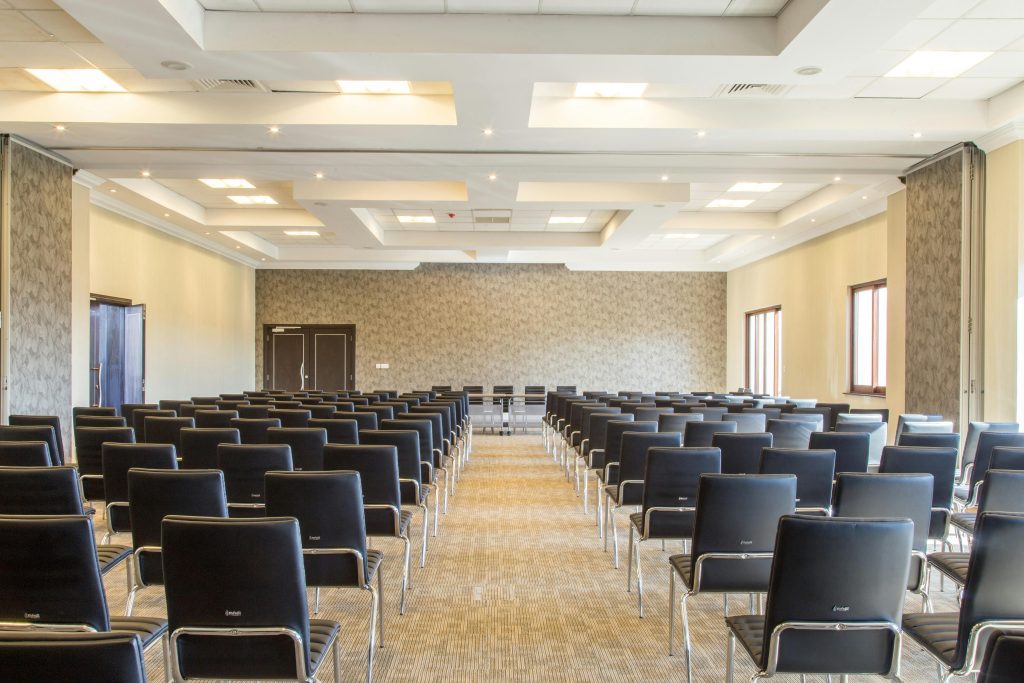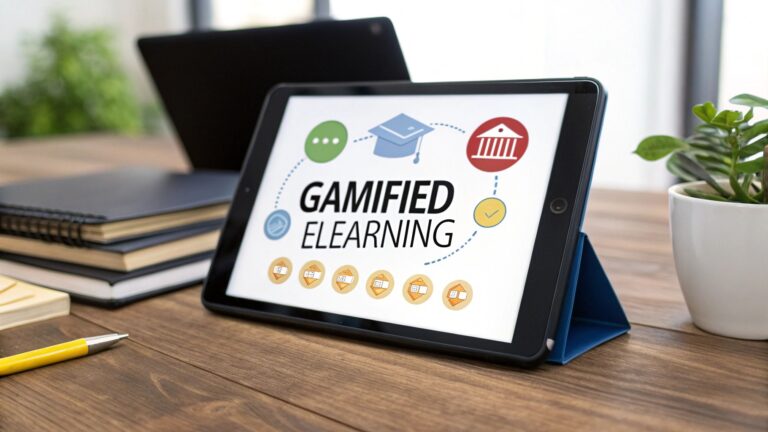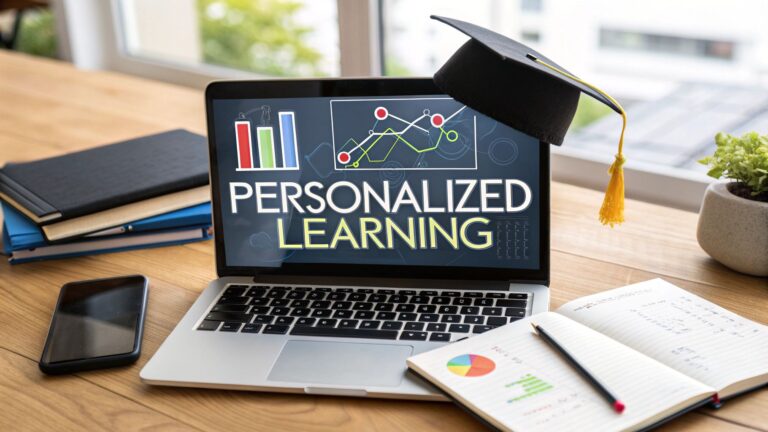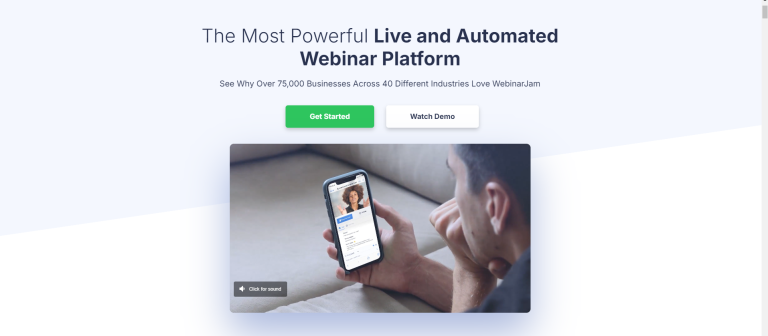Starting a Seminar Company? Follow These 6 Steps for Success

Creating a seminar business can be an excellent opportunity to share your expertise while building a profitable venture. With thoughtful planning and execution, you can develop events that deliver real value to attendees while establishing yourself as an authority in your field.
This is all well and good, but you’re probably wondering how to get started. Well, if you’re new to the whole “seminar world”, then this article is for you! In it, I’ve outlined the initial things you should be doing and thinking about. Naturally, there is more to each of these sections. I encourage you to dig deeper for each one.
With that said, let’s jump into it!
#1 Choose a seminar topic
Choosing a seminar topic is one of the most important steps in starting your seminar business. Your topic should match your expertise and what people are interested in learning. It needs to be something that will bring value to your audience and something you can present clearly.
Start by thinking about areas where you have strong knowledge or skills. It could be a field like:
- health
- business
- technology
- education
The topic you choose should reflect what you know well and feel confident teaching.
Next, you will want to research what people are looking for. Look online at what’s trending in your area of interest and about their needs. This will give you ideas about what topic would be most useful.
You should also focus on a specific subject within your main area. Instead of covering everything, choose a narrow topic that can solve a particular problem. A more focused seminar often attracts more attention because people know exactly what to expect.
As a note of caution: make sure the topic is something that will remain relevant for a while. Avoid topics that could lose interest quickly. Your goal is to create seminars that stay useful and engaging over time.
#2 Identify Your Target Audience
Begin by thinking about who would find value in what you are teaching. If your seminar covers business topics, your audience could be small business owners or young professionals. For personal development subjects, the audience might be those looking to grow in specific areas of their lives.

Consider factors such as:
- age
- job roles
- personal interests
This helps you decide how to present your seminar and what tone to use.
By focusing on your audience, you can design a seminar that speaks directly to them and holds their interest.
Once you have a clear idea of who your audience is, it will be easier to promote your seminar and attract the right people. This will help you deliver a seminar that your audience will appreciate and find useful.
#3 Create a Seminar Plan
Create a proper action plan before going into the preparation of the seminar, this way you’re not wasting time or money. A good plan includes your:
You don’t need a complicated plan, just one that helps you stay on track and guide your business.

Great seminars and workshops require careful planning and structure. Start by breaking down your topic into sections.
- Each part should cover one idea clearly and be easy to follow
- Decide how long each section will be and how you will present the information
- You can mix short lectures with activities to keep people engaged.
- If possible, include time for questions or group discussions to make the workshop more interactive
You will also need to organize materials for the workshop. This could include:
- handouts
- slides
- worksheets
- pamphlets
- QA’s
Make sure the materials are simple and helpful, making it easier for your audience to follow along and learn.
The venue setup also matters. I recommend arranging the room in a way that suits the activities planned. If you expect group work, make sure seating allows for easy interaction. If the focus is on a presentation, ensure everyone can see and hear you clearly.
#4 Find the Right Venue
The venue is critically important for your seminar’s success. You need a place that is easy to access and has enough space.
Start by thinking about how many people you expect. The venue must have enough seating for everyone and room to move around. If your seminar involves group activities, ensure there’s space for those as well.

Check if the venue offers things like:
- projectors
- microphones
- seating
These are important for running a smooth seminar.
Some popular venue options include hotels, conference centers, or universities. These are great options because they are used to hosting seminars and workshops, so they’ll have all the technical tools (and team) available.
#5 Market Your Seminars
If you built it, they will come… but only if you market the event! Chances are if you’re reading this, you have some form of audience already (social media, paid ads, or a popular website). If not, then start there first before you try to create a big event.
The content to promote your content should include the:
- date and time
- what your seminar offers
- keep your message short
- easy to read
- mention the value of your event

Working with partners can also help. You can connect with businesses or groups that have the same audience as your seminar. Ask them to promote your event to their followers or members.
Offering early bird discounts or special offers can motivate people to sign up early. These small deals encourage more interest and help you fill up seats faster.
By using simple marketing methods, you can reach more people and get the right audience for your seminar. Here are some of the more popular methods:
- Social Media Posts: Share details about your seminar on platforms like Facebook, Instagram, and LinkedIn. Use clear messages to attract attention.
- Email Invitations: Send short and direct invites to your email list with the seminar date, time, and benefits.
- Partner with Businesses: Connect with companies or groups that have similar audiences and ask them to promote your seminar.
- Create Event Pages: Set up a dedicated page on your website or use platforms like Eventbrite for easy registration.
- Offer Discounts: Give early bird offers or special rates to encourage people to sign up sooner.
- Use Flyers and Posters: Place printed materials in locations where your target audience spends time, like community centers or coffee shops.
- Run Online Ads: Use Facebook or Google ads to reach more people interested in your seminar topic.
#6 After Your Seminar
After your seminar, there are important steps to take to keep the momentum going. These actions will help you build stronger connections with your audience and improve future seminars.

1. Collect Feedback
Ask your attendees for their thoughts on the seminar. You can use simple surveys or ask for direct feedback. This helps you see what went well and what can be improved next time. Keeping it short and easy will encourage more people to share their views.
2. Send a Thank You Message
Send a quick thank you to everyone who attended. It shows you appreciate their time and builds a positive connection. You can do this through email, a message on social media, or even a simple note.
3. Share Materials
If your seminar had slides, notes, or handouts, share them with your attendees. This helps keep your seminar fresh in their minds and gives them something valuable to refer back to.
4. Stay Connected
Keep the connection alive by offering future updates or events. Let them know about your next seminar or any other services you offer. Building ongoing relationships can lead to repeat attendees and referrals.
5. Review Your Performance
Take some time to reflect on your own experience. Think about what went well and where you could improve. This will help you plan better for your next seminar.
By taking these steps, you can turn your seminar into a lasting success and prepare for even better events in the future.
Obtaining Long-Term Success
Starting a seminar business requires dedication and continuous improvement. Each event provides valuable learning opportunities that strengthen your future offerings. By focusing relentlessly on delivering value to your audience, you create the foundation for a sustainable business that grows through word-of-mouth and repeat attendance.
Your first seminar doesn’t need to be perfect, it just needs to be valuable. Start with smaller, manageable events to refine your approach before scaling to larger venues and audiences.






